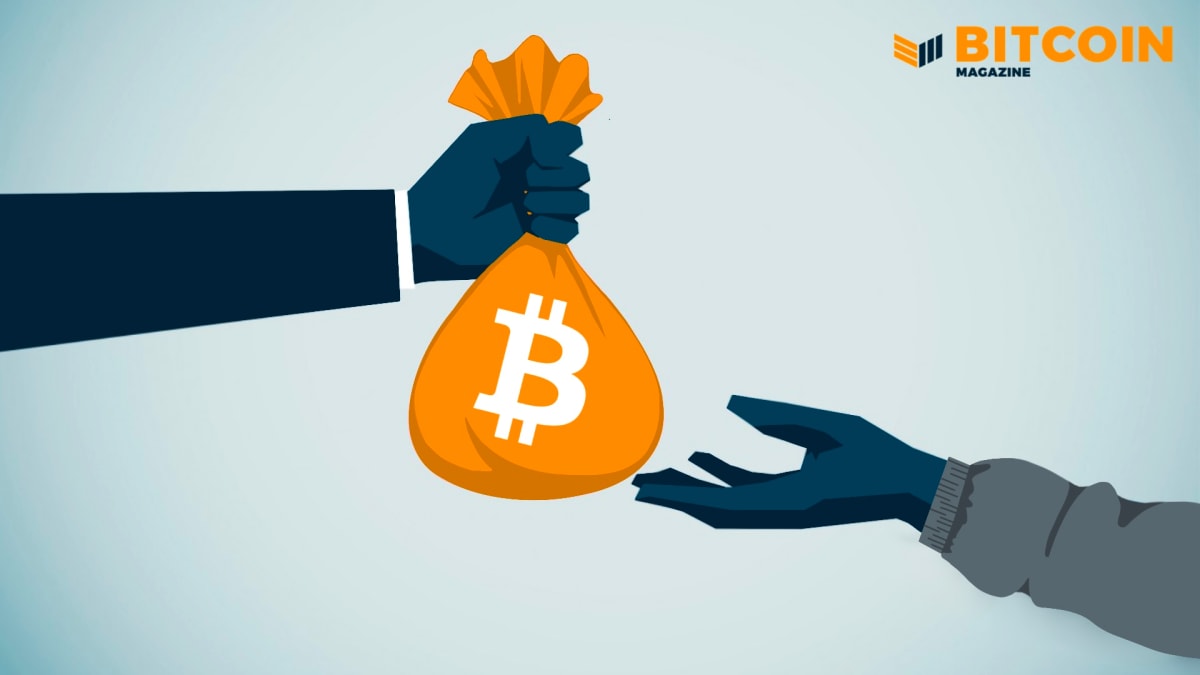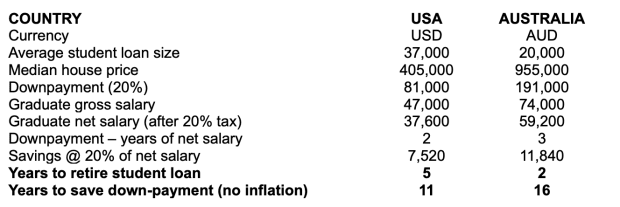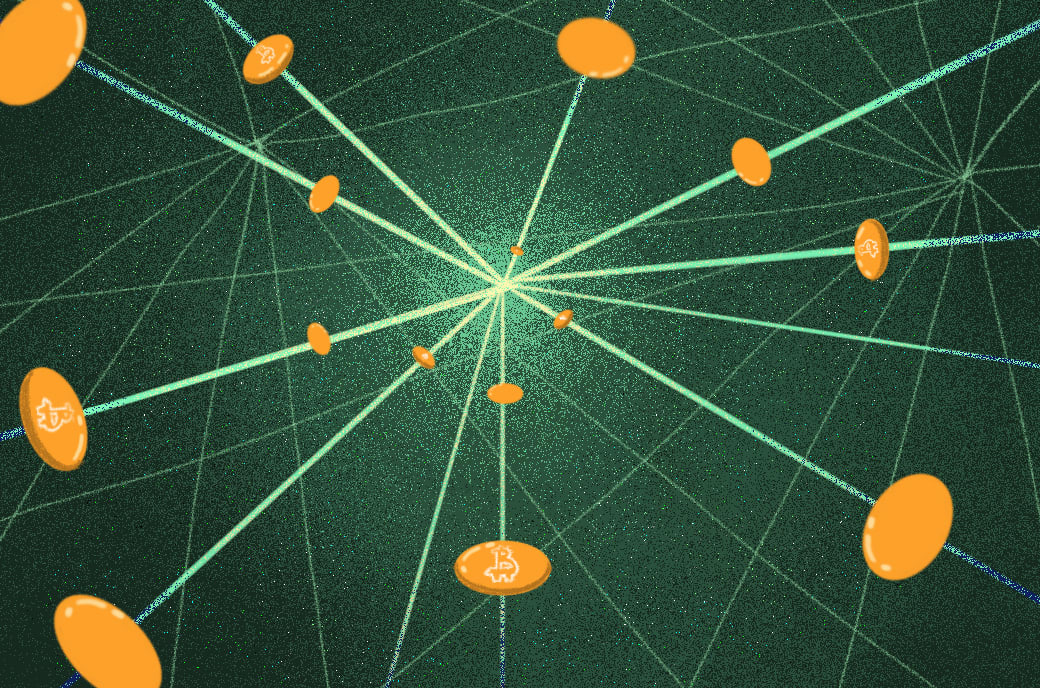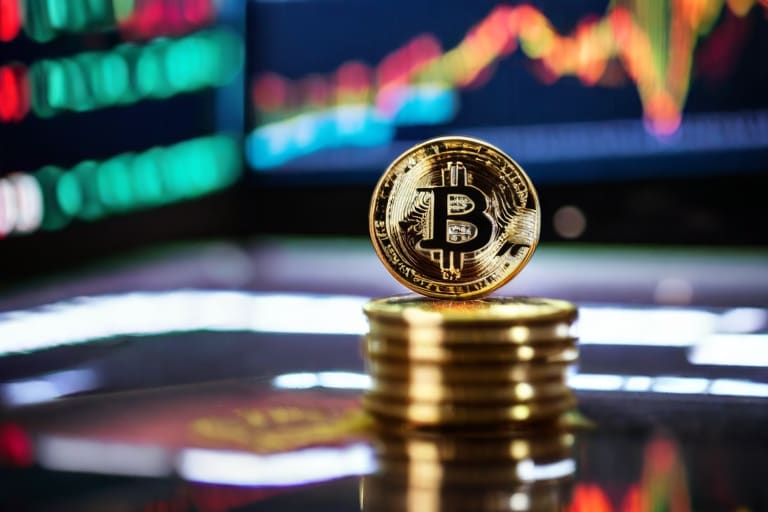An Excerpt From The Satoshi Papers: Self-Sovereignty and Political Philosophy
Bitcoin Magazine
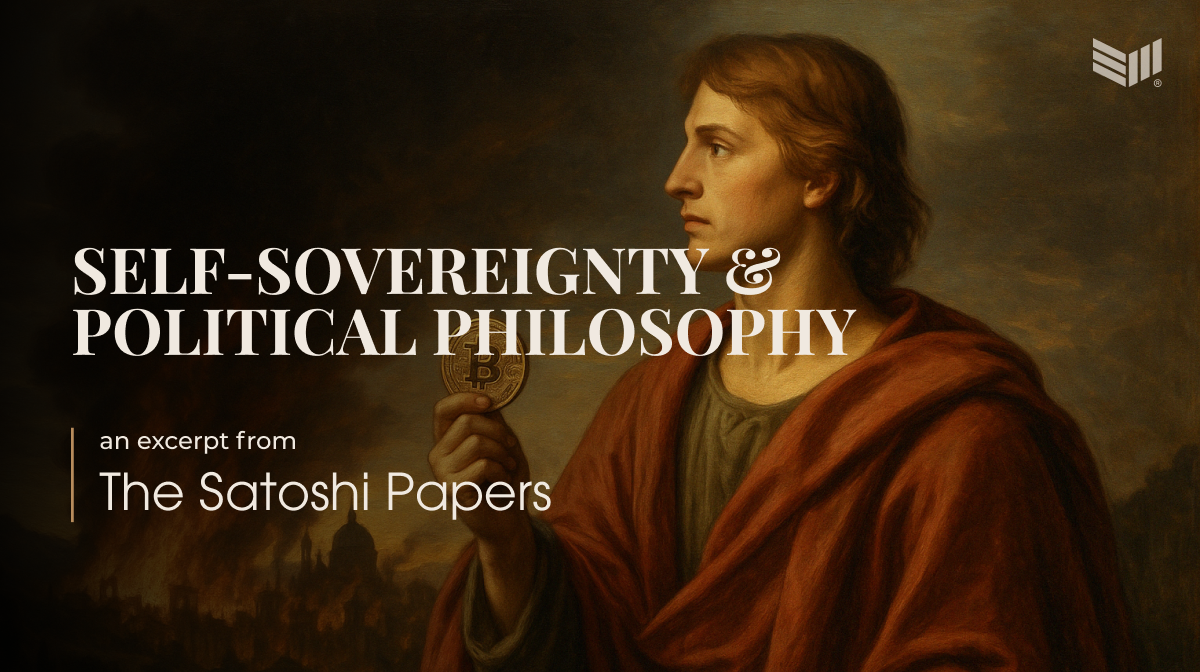
An Excerpt From The Satoshi Papers: Self-Sovereignty and Political Philosophy
This story does not end well. Without principled political renewal stemming from the fundamental root of a self-sovereign political philosophy, we should expect an intensification of surveillance and control and a normalization of war. We must actively choose liberty and peace if we are to thrive. There is no policy of total war, containment, or world policing that does not end in catastrophe.
For political sovereignty to have purchase, it must come from the ground up and be appropriately exercised in light of what can be expected of such a thing at various scales. This is a significant undertaking and not one that will be settled in any collection of essays, reinvigorated political parties, or technological capabilities. The ground up legitimacy of a politics worth its salt requires functioning societies and the sovereign individuals who bring them to life as heirs of tradition and agents of the future. The tension between tradition and science that fuels the progress of civilizations must be taken up seriously as the engine of renewal. New common knowledge adds to the common sense of a society. This often makes some prior arrangement inoperative, but in doing so, it opens up the possibility of transforming something that was simply taken for granted before.

Satoshi Nakamoto’s 2008 white paper and 2009 code were assertions of individual sovereignty explicitly motivated by the banker bailouts of that era., They called the Banker Revolution into question by building a counter-infrastructure in the world and allowing the game theory behind its adoption to act as a social forcing function around matters of wage value, savings debasement, and the human right to transact. The open illustration of the supranational social infrastructure that is the BTC protocol and token is a Hayekian “sly roundabout” moment of possibility that creates and motivates common knowledge where previously there was none.,, This acts as a one-way door, removing the possibility of naïve participation in variously despotic systems functioning as self-evident norms. The removal of naïveté around such things as the Cantillon effect, sovereign-debt reserve assets, and the confidence games and social consensus around fiat currencies and their debasement necessarily moves populations toward common knowledge regarding the civic and civil systems of control that have become devastatingly effective in curtailing if not criminalizing essential liberty. If we are to avoid the worst ramifications of the return to aristocracy that has been underway since the 1970s, we must risk knowing these things and building what is next. That is what is at stake.
The Satoshi Papers is now available in the Bitcoin Magazine Store – order the paperback today or pre-order the limited Library edition, shipping mid-June 2025.
[37] Leo Strauss, “Philosophy as a Rigorous Science and Political Philosophy,” Interpretation: A Journal of Political Philosophy 2, no. 1 (Summer 1971): 1—9. [38] Satoshi Nakamoto, “Bitcoin: A Peer-to-Peer Electronic Cash System,” 2008, https://bitcoin.org/bitcoin.pdf. [39] Joshua Davis, “The Crypto-Currency,” The New Yorker, October 3, 2011, https://www.newyorker.com/magazine/2011/10/10/the-crypto-currency. [40] “I don’t believe we shall ever have a good money again before we take the thing out of the hands of government, that is, we can’t take them violently out of the hands of government, all we can do is by some sly roundabout way introduce something they can’t stop.” See Friedrich Hayek, “F. A. Hayek: Monetary Policy, the Gold Standard, Deficits, Inflation, and John Maynard Keynes,” interview with James U. Blanchard III, University of Freiburg, May 1, 1984, https://www.youtube.com/watch?v=EYhEDxFwFRU&t=1160s. [41] “Governments will never allow monetary competition, and even bankers do not understand the idea because they have all grown up in the system which is so completely dependent on central banks. So I think we need a roundabout way. After all, in the modern world, currency is no longer the most important money. Credit and credit cards are substitutes. While governments can stop people from issuing money, they can hardly stop them from opening accounts in something unless they introduce a complete system of exchange control. I do not expect that any bank will understand this idea. But I hope that one of the big dealers in raw materials will be prepared to open accounts which will be redeemable in so much of current moneys as are necessary to buy this list of raw materials. Through these accounts he can make his unit—call it the ‘solid’—the standard unit without it ever being used in circulation. People very soon will begin to keep their accounts in ‘solids’—the only thing which is trustworthy. Although it’s a thing where many people can compete, most of them will probably choose the same list of raw materials. If one major firm will start this, others will imitate it. So I think we can forget about existing money and existing banks, and gradually open a system of accounts which will displace the government money.” See Friedrich Hayek, “F. A. Hayek: Monetary Policy, the Gold Standard, Deficits, Inflation, and John Maynard Keynes.” [42] “The interesting fact is that what I have called the monopoly of government of issuing money has not only deprived us of good money but has also deprived us of the only process by which we can find out what would be good money.” See Friedrich Hayek, Good Money, Part 2: The Standard (Chicago: University of Chicago Press, 2012), 234.This post An Excerpt From The Satoshi Papers: Self-Sovereignty and Political Philosophy first appeared on Bitcoin Magazine and is written by Natalie Smolenski.


